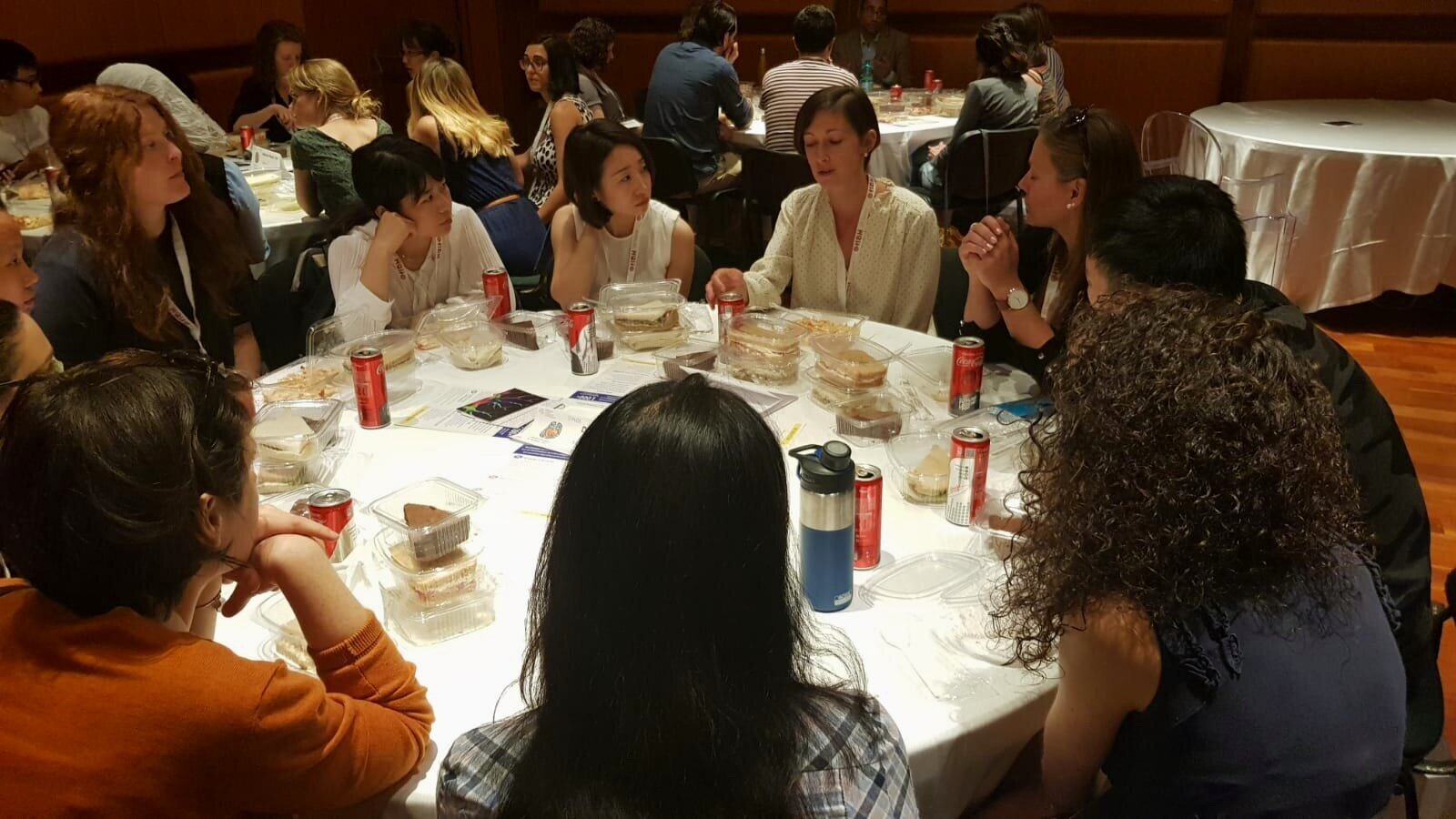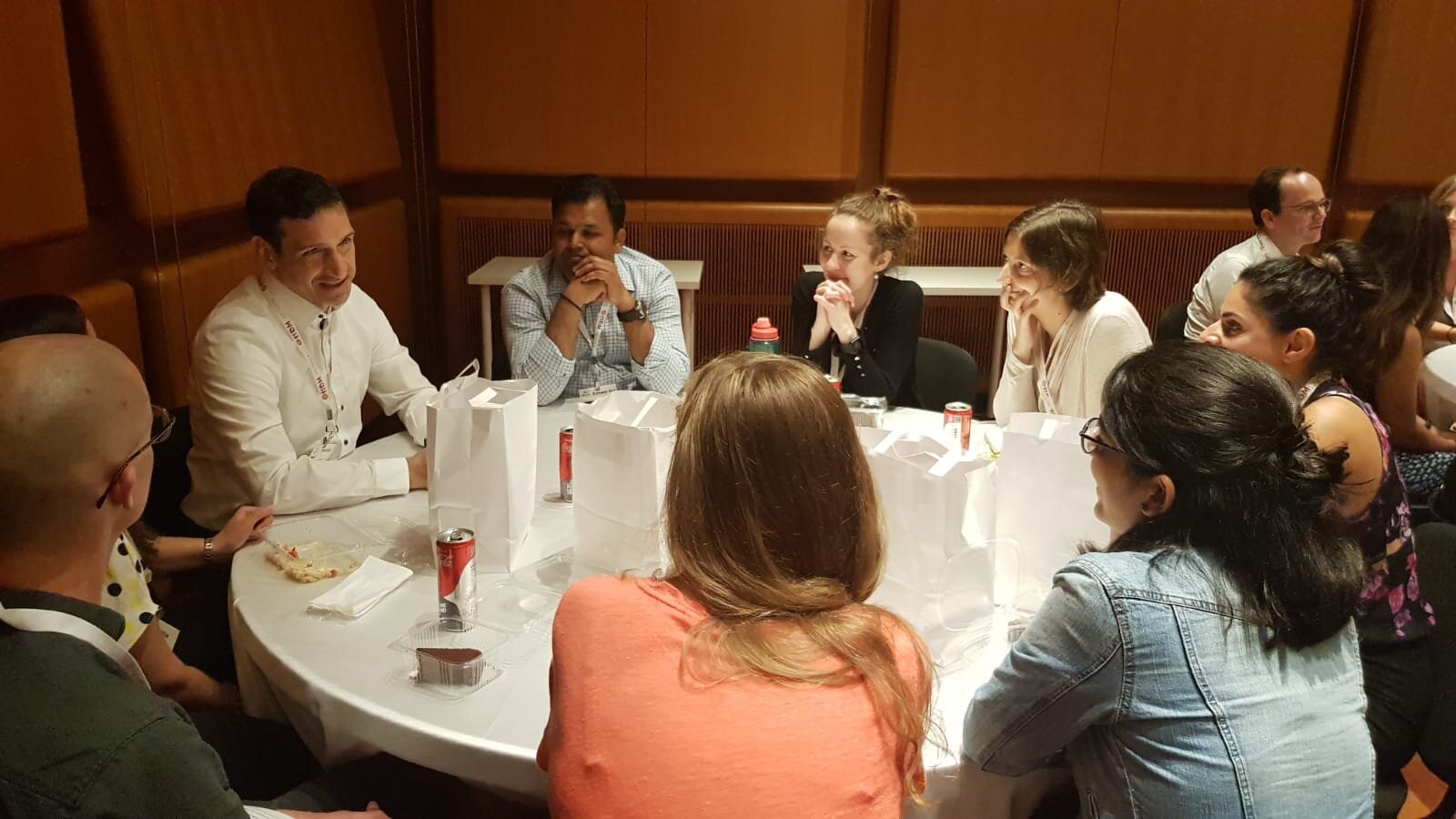Reflecting back on 2019: OHBM mentee experiences
Carolina Makowski
Edited by: Meena Makary and Mengxia Gao
One of the first things I tell people when I’m asked how I got my foot in the door in academia is that I had a really great mentor. I was in my second year of undergrad, lost and insecure as many of us are at that stage in our lives, and barely even knew what an MRI was. I often say that I have no idea where I would be if my mentor hadn’t taken a chance on me and guided me the way she did. This invaluable mentorship can be hard to find, even if you are actively seeking it. Especially as a new graduate student or early career researcher, it can be intimidating to seek out the help of the “rockstar” scientists we admire - and sometimes we overlook that the best mentorship can come from people that are closer in career stage to us.
The OHBM Student and Postdoctoral Special Interest Group (SIG) internalized this need of finding a mentor in the human brain mapping community and launched the online international mentoring programme in 2017. This volunteer-based programme matches mentors and mentees based on years of experience and broad career trajectory interests (e.g. staying in academia, transitioning to industry). It’s a platform that helps people connect from all corners of the world both online and in person at the annual OHBM meeting. Over 500 individuals have already taken part, with 80% percent of people interested in finding a mentor.
To complement this initiative, additional events have been added to the annual OHBM meeting to help bring together PIs and trainees in a setting that likely wouldn’t happen by chance otherwise. For instance, the “Career Development and Mentoring Symposium” has had a successful two-year streak, inviting early career and senior PIs, as well as scientists that have transitioned to industry, to provide a candid glimpse into their experiences both inside and out of academia. This was then complemented by the newly-minted Lunch with Mentors event in Singapore 2018, providing an informal setting where mentees could ask their burning questions to a PI sitting at their table. For this event, a catered lunch was provided while trainees sat around roundtables with mentors from both academia and industry. This hour-long event created a space that allowed trainees to approach and converse with more established researchers.
With the launch of the third year of the online mentorship programme and active organization of next year’s annual meeting events in Montreal, we took the time to reflect on how these initiatives have impacted mentees in the 2018-2019 programme and lessons learned that serve as inspiration for future events.
“The OHBM mentorship program, in my opinion, was one of the most successful initiatives of this organization in the past two years. This program contributed a lot to my personal and professional life. I was a new assistant professor at Bilkent University (Ankara) in 2016 when the coup happened in Turkey, which was followed by a rise in political tensions and blockage of many research grants (including mine). When I decided to go back to be a postdoc and start from there again, I knew that the process of applying for an independent position would be more difficult this time. I had the support of my postdoctoral training supervisor at the time, but I needed to get advice from an independent academic to improve my chances (and also to get a second opinion on some of the decisions that I had to make). In two years, I had two mentors who spent a lot of time in Skype/Zoom meetings with me, revised my applications, and helped me to get through difficult times in that period of life. I had the chance to meet them during the annual meetings in Singapore and Rome and have a drink with them. This is one of my best memories of those meetings and encouraged me to stay in contact with students and postdocs in the SIG and try to contribute to the online mentorship program.”
Ali Khatibi, Senior Research Fellow, University of Birmingham
“Each time I attended the annual meeting, I made sure to sign up as early as possible for the Lunch with mentors event. I feel lucky to have attended each year’s event because it usually sells out quickly and it's been helpful so far. Having the opportunity to ask questions in an informal way to mentors has helped shape the path I now follow for my career. Discussing about our own experience with 10-12 other people in similar situations but a different stage in their life also inspired me. I find it refreshing to hear about others’ unique path from all around the world and how they have managed to get where they are. However, one downside to getting an older mentor is the generation gap and the different concerns we face versus what it used to be back then for them. Regardless, they all have been open about it and shared with us what they think we will need as future scientists. Up to us to agree with them, but it’s useful to know their perspectives either way.”
Samuel Guay, PhD Candidate, Université de Montréal
“The Lunch with Mentors roundtable at the recent Organization for Human Brain Mapping (Rome 2019) was a unique opportunity to engage with distinguished leaders in academia and industry. It was unlike any event I had experienced at an international conference, and naturally I was drawn to it as I am constantly looking for opportunities to explore diverse career pathways. We (10 trainees total) were paired with mentor Nina Preuss (a certified project management professional) based on our overlapping interests. She gave me a glimpse into the world outside of academia. What I did not expect was an opportunity to interact with 9 other trainees, which might not have happened otherwise. We all came together, having various backgrounds in neuroimaging, but with one common question in mind: What do people do after their PhD/Post-doc other than the traditional tenure-track career? As I look back, the greatest strength of this event was making new Twitter contacts from around the world who share similar interests about academia. There is something unique about putting people together with common interests that leads to collaboration and new friendships. I encourage more organizing committees to use an international conference as an opportunity to foster mentorship and collaboration through a Lunch with Mentors event such as this one. You never know who you will meet or what you will discover.”
Cristina Rubino, PhD Candidate, University of British Columbia
“The trainee lunch with mentors at the last annual OHBM 2019 meeting gave us trainees an opportunity to meet and talk with impressive and well established researchers in a fairly informal setting. I was paired with Dr. Michael Greicius, who shared with us his journey from residency into professorship, and how his interests have evolved throughout his career. He was very candid and down to earth, gave us great advice on choosing collaborations, making decisions on the next steps in our careers, and work-life balance. In addition to the privilege of meeting with the mentors, it was nice to meet fellow students who are in the same boat, and to see how they are approaching some of the questions that many of us graduate students face.”
OHBM trainee
“At some point during my PhD I realised academia wasn’t for me and started independently researching how to successfully approach the transition to industry. Around the same time I got involved in the SIG and their international mentoring programme and decided to give it a try. It was one of the best choices of my life! I got paired to not one, but TWO amazing industry mentors, who have been super supportive - one of them is also a woman and she opened my eyes to the unconscious gender biases that are ingrained in women’s brains and hurt our careers. It’s thanks to my industry mentors that I managed to land first an internship and then a permanent position at a leading pharmaceutical company months before I graduated. And they have also agreed to keep in touch and support me along the way in this new job! I’m super excited and I couldn’t be more grateful to the OHBM Student and Postdoc SIG for how it changed my life!”
Marzia Antonella Scelsi, PhD candidate, University College London
As our mentorship program continues to grow, we are really excited to hear about the positive impact it has had on trainees in the program. Stay tuned for more details on our upcoming mentorship and career development symposium and Lunch with Mentors event in Montreal 2020! Until then, feel free to peruse a few photos included below from our Lunch with Mentors event in Rome 2019 (for a full list of mentors that participated, you can check out our annual symposium page). À bientôt!
Lunch with Mentors (LWM) roundtable with Dr. Danielle Bassett, one of the keynote speakers for OHBM 2019 in Rome.
LWM Roundtable with Dr. Daniel Margulies, winner of the OHBM 2018 Early Career Investigator Award.
LWM roundtable with Dr. Lucina Uddin, winner of the OHBM 2017 Early Career Investigator Award. I feel really grateful that I had the opportunity to join this table!
LWM roundtable with Dr. Patrick Britz, CEO & President of Brain Vision LLC and CEO of Brain Vision Solutions, representing an increasing number of trainees’ interest in mentorship from someone in industry.




